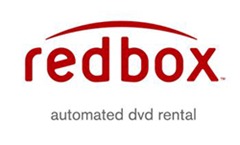
Blockbuster the sleeping giant is, and when it would awaken.
Can someone tell me why Blockbuster didn’t see this?
Why?
On the one hand, you have Redbox, a company whose previous claim to fame was the Coinstar concept.
Granted, they may have perfected their distribution model, but you cannot tell me that they gained some extraordinary advantage moving coins from place to place.

This is the same company that brought the first wave of consolidation into the home video rental space, and has the distinction of being in every metro, from Spivey’s Corner to Wasilla. Even in my current home metropolis, population less than 50% of Wasilla, we have a Blockbuster Video Store.
However, the dominance of Blockbuster had hidden the faults of the company, namely, it didn’t innovate after reaching that primacy. And please, do not talk about the addition of expensive candy, silly, non-exclusive posters, or the junky tchotchkes that clogged the aisles at that video rental emporium.
In order words, Blockbuster was ready for a lesson.
The first, nearly fatal blow was struck by Netflix.
Netflix introduced the rental-by-mail method, and it caught Blockbuster napping.
The attempt at recovery, by getting online Blockbuster customers return media to the stores, and get a new hit movie while awaiting the next queued delivery.
However, Blockbuster kept changing the program, and caused customer confusion.
While impressive, the entry of Netflix didn’t deal Blockbuster a mortal blow.
Enter Redbook.
One would think that Blockbuster’s distribution network positions it for dominance in this market.
That is not the case.
First off, Blockbuster is drunk off the $4 or so it charges for each movie rental
Secondly, the myopic leaders of Blockbuster have not seen fit to realize that the most innovative thing to do is create a similar kiosk program, and have it totally subsume their current brick-and-mortar store system.
Sounds heretic, does it?
Thank about it: if such a program is initiated, the immediate effects would be extremely beneficent to Blockbuster.
All of a sudden, Blockbuster can rid itself of numerous real estate contracts, providing some nimbleness to the company. It would also allow for a great reduction in employees, and may also allow the reduction in distribution facilities. This vast reduction in fixed costs would allow it to not only focus on the kiosk concept, but also allow it to attempt to regain some relevancy in online video rentals.
But, do you think those ostriches are listening, watching, or even awake?
Follow me on Twitter